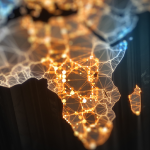Nubia Capital
We are committed to investing in tech-enabled startups across Africa and helping founders grow extraordinary businesses.
Published Jan 10, 2024
Resilience
As the famous quote by Oprah Winfrey goes,“The biggest adventure you can ever take is to live the life of your dreams.”
This quote encapsulates the African startup ecosystem in 2023. Despite the challenges facing African startups, African founders have demonstrated remarkable resilience in the face of adversity. Through this superpower, African startups have the potential to drive growth and innovation across the continent throughout 2024.
In this article, I will highlight the challenges and opportunities faced by African startups, as well as the strategies that helped them succeed. I will delve into the importance of having a dream, the obstacles that can prevent you from achieving it, and the lessons that can be learned from successful African startups.
Challenges African founders face while building.
These challenges are rarely faced by their counterparts in developed countries.
Infrastructure.
Infrastructure is a critical component of any startup ecosystem. It provides the foundation for startups to operate and scale their businesses.
There are two kinds of infrastructure relevant to the startup ecosystem.
The SDIA defines Digital infrastructure as the total physical and software-based infrastructure necessary to deliver digital goods, products & and services. This includes data centres, fiber infrastructure, server hardware, personnel, IT virtualization & and infrastructure software, operating systems, etc. Physical infrastructure also plays a vital role in promoting social development. It includes the availability of healthcare to maintain decorum and prevent the spread of diseases, to create a healthy working population too. This infrastructure also includes great sanitation, community centres and research centres/parks to support the startups. The deployment of digital infrastructure often requires physical infrastructure, such as the installation of fibre-optic cables and other network infrastructure and the development of digital infrastructure improves the creation and maintenance of physical infrastructure. For instance, smart transportation systems.
Infrastructure is very important for the startup ecosystem.
For instance, in 2023 London was crowned the world’s top ‘smart centre’, beating US cities like New York and San Francisco for the first time, according to Z/Yen Group’s Smart Centres Index. This was due to their digital and physical infrastructure strategy/smart city roadmap launched in 2018. According to UKnews, continuous data from sensors, citizens, buildings and other sources are be used to understand what’s happening across the city in real-time, and better plan and manage public services and infrastructure. Apart from the fact that the startups are consulted to bring this vision to life, The day-to-day benefits of London’s data infrastructure and connectivity make the city even more attractive for tech workers.
Infrastructure is often weak or inadequate in many parts of Africa, making it difficult for startups to succeed. How? They have to solve or contribute to solving the underlying difficulties at hand. This makes the overhead cost higher. Many times too, they are affected by the lack of infrastructure and this makes delivery of services slower.
Despite these challenges, many African startups have found ways to work around the weak infrastructure. For example, some startups have developed mobile apps that work offline, allowing users to access content even when they don’t have an internet connection. Additionally, some startups have leveraged technology to work around the lack of reliable electricity, such as using solar panels to power their operations.
African founders are truly building solutions that can work alongside the poor infrastructure. We have startups like Phenomenon Technologies (Home of Sciency) created Sciency, a portable science lab for science students that works on a smartphone. A typical example of solving a problem (lack of great scientists in Africa) while dealing with infrastructure issues (Physical infrastructure)
Another way that African startups have worked around the weak infrastructure is by partnering with other startups and established companies. By sharing resources and expertise, startups can overcome some of the challenges posed by weak infrastructure.
Regulatory environment:
The regulatory environment in Africa can be challenging for startups. Many countries have complex and opaque regulatory frameworks that make it difficult for startups to operate. This can lead to delays in product launches and increased costs for startups. The private sector has always led the technology revolution in Africa. The public sector has always played catch-up. For instance, Many African countries do not have a Startup Act. This Startup Act as seen in Nigeria and Tunisia helps startups launch and scale by offering financial incentives and support.
This means an entire ecosystem is not actively supporting the growth of the tech businesses. The lack of a Startup Act also highlights visa limitations. It is difficult for foreigners to get into these countries to work. What is a tech ecosystem if it’s not about value exchange amongst founders, VCs and ecosystem enablers? With the many other regulatory hurdles across Africa, we have seen these same founders spearhead the development of laws and policies. For instance, Nigeria Startup Act and Implementation is spearheaded by these founders, ex-founders, ecosystem enablers and builders. In Africa, the energy is resilience.
Some countries have also made significant progress in recent years due to the resilience of the private sector. For example, Rwanda has implemented several reforms to make it easier for startups to operate, including streamlining the business process and reducing the time and cost of registering property.
While the market size in Africa can be a challenge for startups, some startups have managed to overcome this challenge by targeting niche markets and developing innovative products and services3. Additionally, some startups have expanded beyond their local markets and entered international markets, allowing them to achieve economies of scale1.
In conclusion, while the points I listed earlier provide a good overview of the African startup ecosystem, they are not exhaustive. Several other factors impact the performance of the African startup ecosystem, including access to funding, talent acquisition, and many more but as we have seen in Africa, we are passionate about our continent and will not stop at the first sign of a hurdle. African founders are resilient. Ecosystem enablers are appreciated and Africa will be great.
Cheers to a greater 2024.




